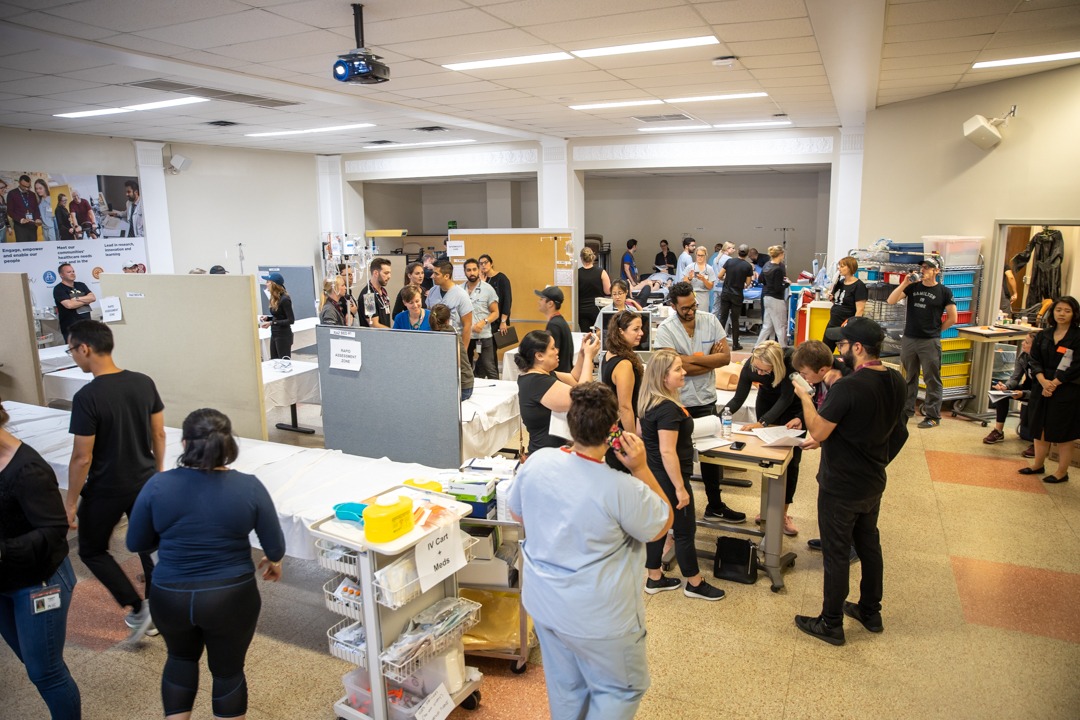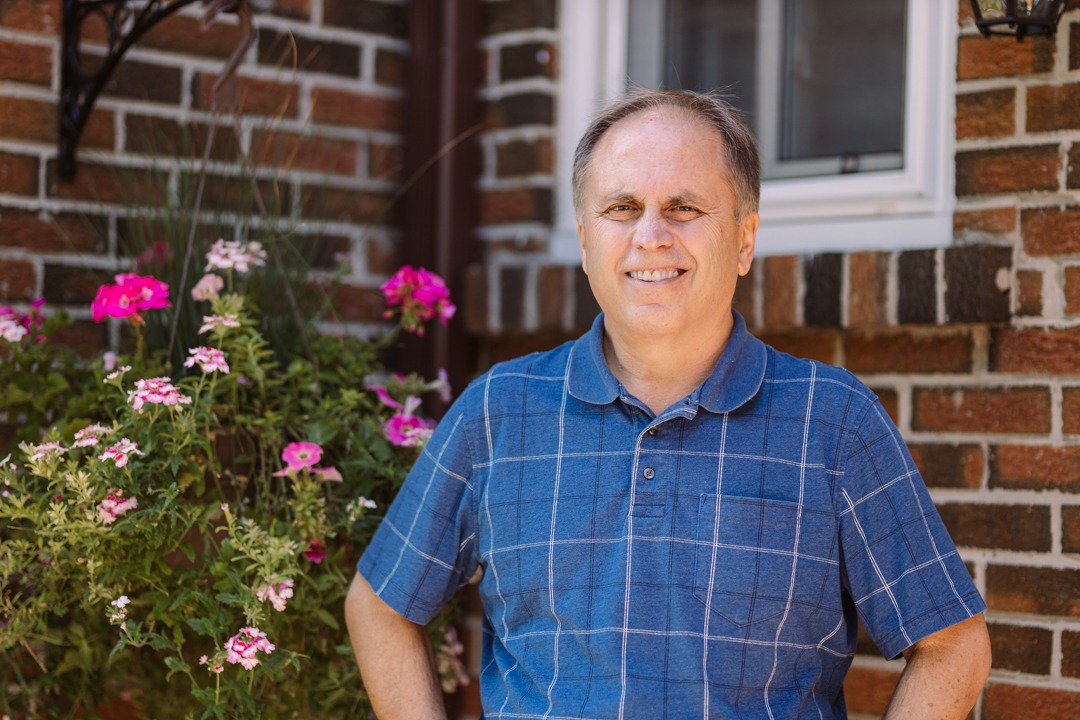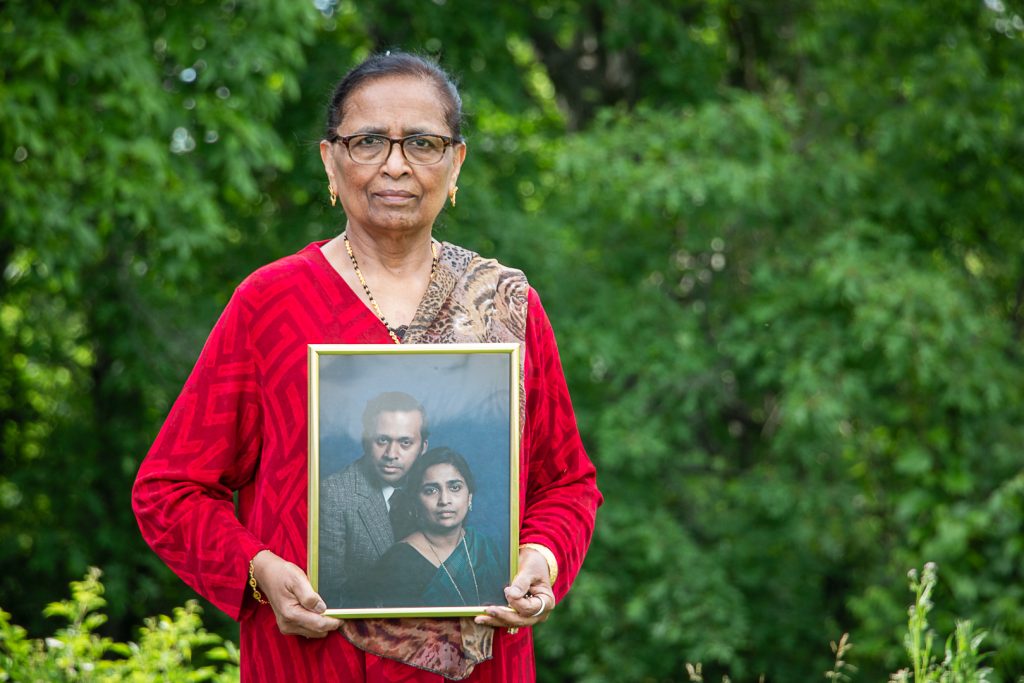
HHS family shares impact of terrorism in Canada
Hospital sites lower flags for June 23 National Day of Remembrance for Victims of Terrorism
Rob Alexander and his family know first-hand the devastating impact of terrorism in Canada.
His father, Dr. Anchanatt Mathew Alexander, was among the 329 people killed in the June 23, 1985 bombing of Air India flight 182. The Hamilton surgeon worked at the former Chedoke hospital and McMaster hospital, now McMaster University Medical Centre, a Hamilton Health Sciences (HHS) site. He went on to become chief of staff at the West Haldimand General Hospital in Hagersville.
Dr. Alexander was flying to India to visit his elderly mother when the plane exploded over the coast of Ireland, killing everyone on board.
National Day of Remembrance
The bombing is the largest mass murder and terrorist act in Canada’s history, and it’s the reason organizations across the country, including HHS, lower flags to half-mast each June 23 in recognition of Canada’s National Day of Remembrance for Victims of Terrorism.
The Air India Victims’ Families Association successfully lobbied the federal government for this official day of recognition back in 2005 as a result of the judicial public inquiry into the tragedy. Rob is a member and a current director of the association.
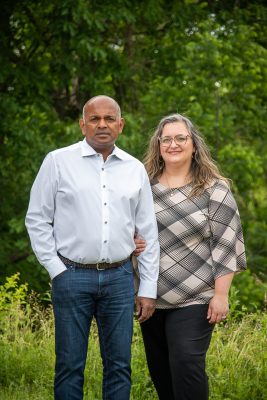
Rob and Linda Alexander. Linda is a longtime HHS staff member.
“I’m pleased to see HHS and other organizations lower their flags in remembrance,” says Rob, an insurance and benefits consultant who lives with his wife Linda and their two children in Hamilton.
Linda is a 21-year HHS employee who works as a medical secretary in the anatomical pathology lab at Juravinski Hospital and Cancer Centre. “It’s an important recognition of this national tragedy,” she says.
Deeper understanding needed
The family hopes that the Day of Remembrance will help educate Canadians about Air India flight 182, and its significance in Canada’s history.
“Many Canadians still view the bombing as a foreign act because it happened on an Indian airline,” says Rob. “In fact, this terrorist plot was hatched in Canada and carried out on Canadian soil. The bomb was planted on the plane in Vancouver, and almost 80 per cent of the people onboard would have been Canadian citizens and permanent residents.”
From Vancouver the plane travelled to Toronto, picking up passengers including Dr. Alexander. It stopped next in Montreal, and was en route to London–Delhi–Mumbai when it exploded over the Irish coast.
Rob, now 52, was 15 years old at the time. His two siblings, Tania and Jamie, were just 12 and 9. The family didn’t know for days that there were no survivors. Rob remembers imagining that his dad survived and was heroically saving others, just like in the movies.
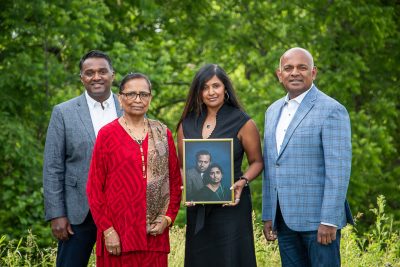
Esmie was left to raise her three children after the bombing of Air India flight 182. She is pictured here with her sons Jamie and Rob, and daugter Tania.
“I pictured him helping people into life rafts, and helping injured survivors. He had hospital emergency department experience, and was one of those good men who liked to help.”
Canadian roots
Rob was a small child when he immigrated to Canada in 1971 with his father and mother, Esmie. His siblings were born here.
“My dad could have worked anywhere in the world but he chose Canada, and Hamilton,” says Rob, who attended Hillfield Strathallan College along with his sister and brother. From Hillfield Strathallan, all three siblings all attended McMaster University.
“My parents liked this community and wanted their kids to grow up here.”
A show of respect
Lowering flags to half-mast on June 23 recognizes the largest mass murder and terrorist act in Canada’s history, and is also a reminder of the ongoing role Canadians can play in creating inclusive, safe communities.
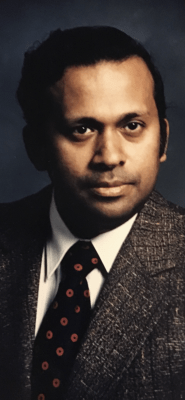
The late Dr. Anchanatt Mathew Alexander was proud to work and raise his family in the Hamilton area.
“I am so proud to know that my incredible employers at HHS are interested in recognizing this day and to show how much it means to all our communities who have endured even more recent tragedies, including Canadian lives lost on Ukraine International Airlines flight 752 and the terrible events in London, Ontario,” says Linda.
She’s referring to the Ukrainian plane shot down by an Iranian surface-to-air missile in January 2020, killing 55 Canadian citizens and 30 permanent residents. And one year ago, four Muslim family members were killed London, Ontario in what police call a hate-motivated truck attack. A 21-year-old man faces four counts of first-degree murder.
These recent tragedies show that terrorist acts continue to take place on Canadian soil, as well as against Canadians, say Rob and Linda.
Meanwhile, Rob continues working to raise awareness of the Air India tragedy and promote the National Day of Remembrance through his advocacy efforts with the Air India Victims’ Families Association.
“Though the bombing happened 37 years ago, it’s a significant event in Canada’s history that should be front-and-centre in people’s minds, especially on June 23,” says Rob.
“The National Day of Remembrance is an important reminder that we must not become complacent. These types of mass-casualty events can change the course of a country’s history and have a deep, lasting impact on citizens, especially since these are avoidable events that have wasted hundreds of lives.”

